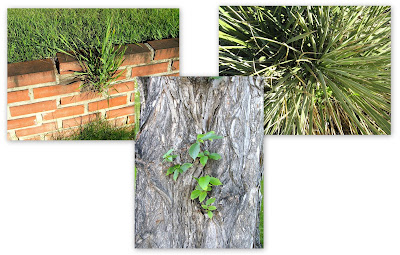Now that I have mostly abandoned the making and quilting of large quilts and choosing instead to focus on smaller fibre art and mixed media pieces texture has become a very important aspect of the work. Texture can be added by using varied and interesting items such as threads, dimensional items like painted and heat altered Tyvek™ and Lutradur™, spackle, modeling paste, layers of papers, found objects, raised embroidery stitches and beads.
Monday, 29 July 2013
Textures
Coming from a long career in quilting I understood that the
actual quilting was an integral part of the overall product, but was a
minimalist when it came to the quilting of my quilts, enjoying the process of
colour and fabric selection much more than the final quilting of the project. The choice
of thread colour and overall pattern added dimension and interest to the quilt
and the advent of free motion quilting and thread painting added much needed
depth and texture to an otherwise flat plane.
Now that I have mostly abandoned the making and quilting of large quilts and choosing instead to focus on smaller fibre art and mixed media pieces texture has become a very important aspect of the work. Texture can be added by using varied and interesting items such as threads, dimensional items like painted and heat altered Tyvek™ and Lutradur™, spackle, modeling paste, layers of papers, found objects, raised embroidery stitches and beads.
Now that I have mostly abandoned the making and quilting of large quilts and choosing instead to focus on smaller fibre art and mixed media pieces texture has become a very important aspect of the work. Texture can be added by using varied and interesting items such as threads, dimensional items like painted and heat altered Tyvek™ and Lutradur™, spackle, modeling paste, layers of papers, found objects, raised embroidery stitches and beads.
Subscribe to:
Comments (Atom)


